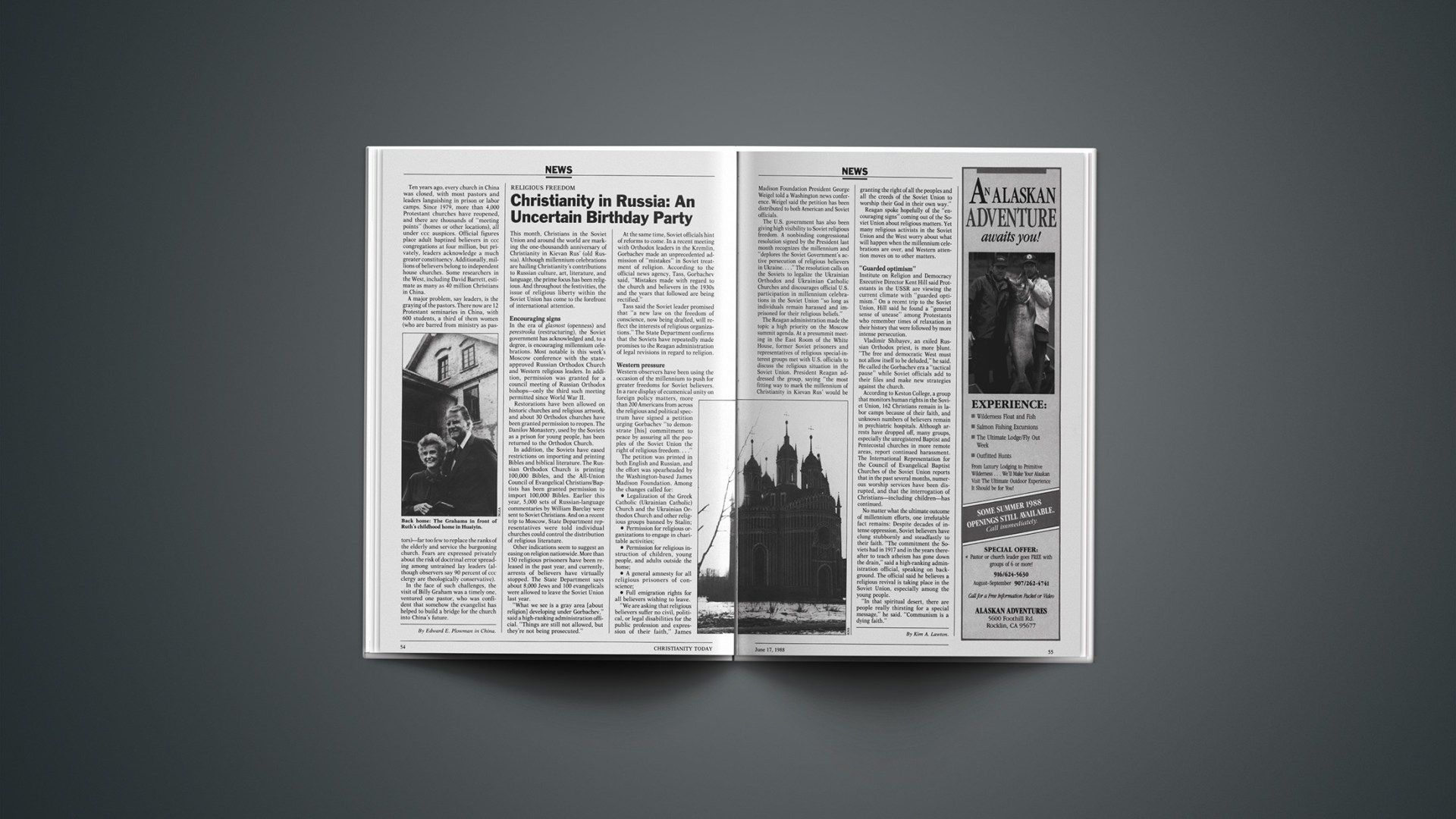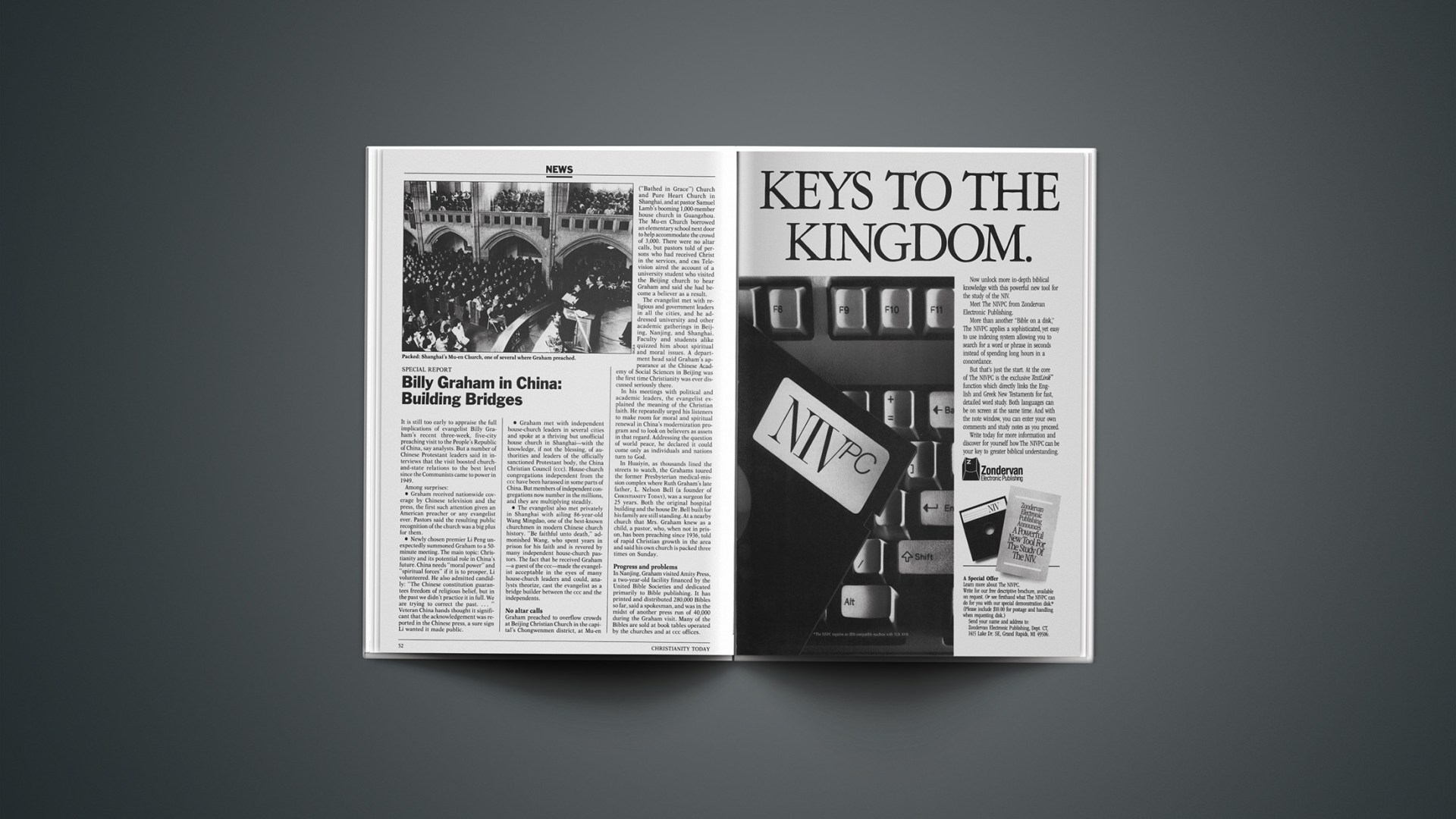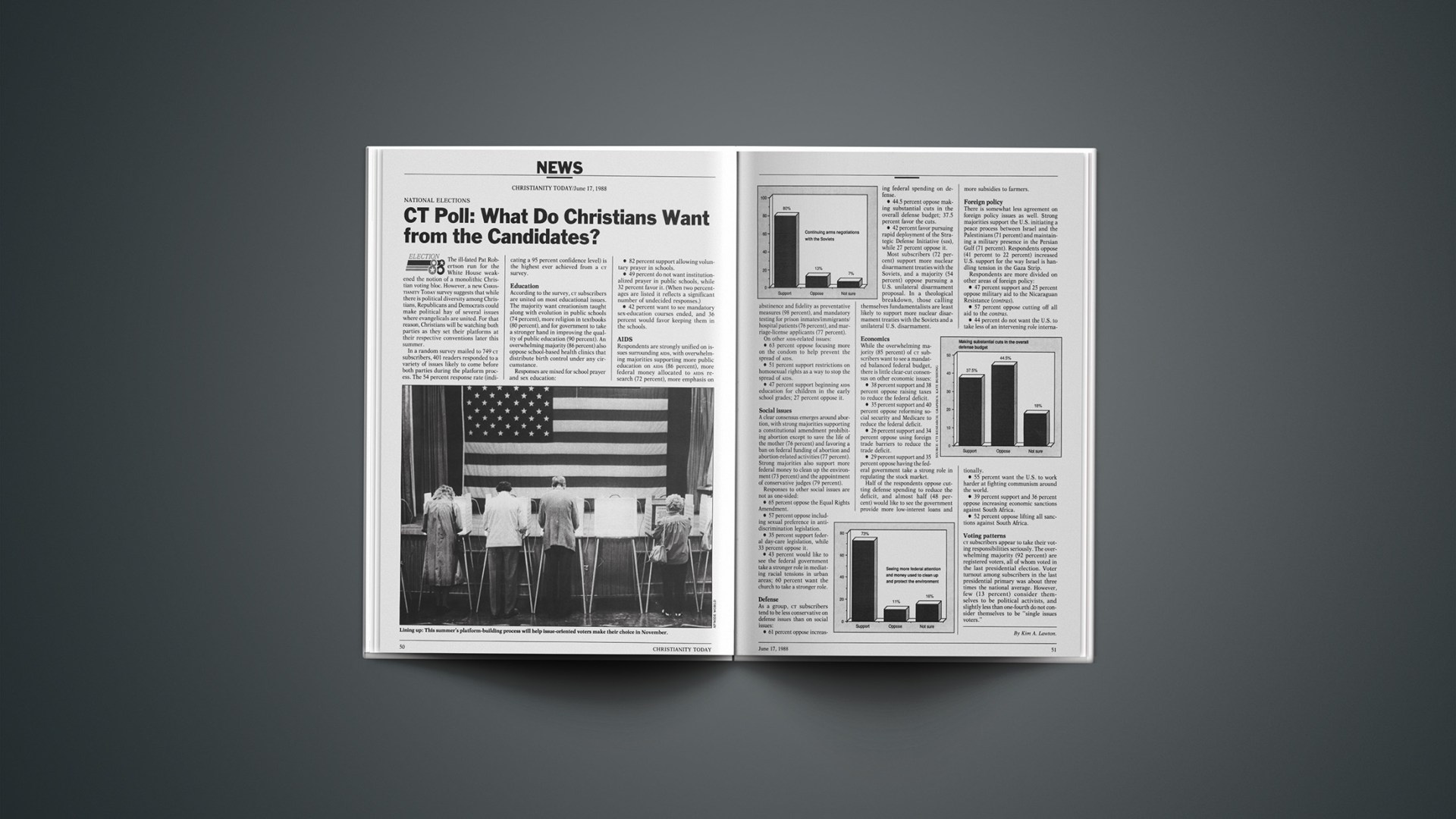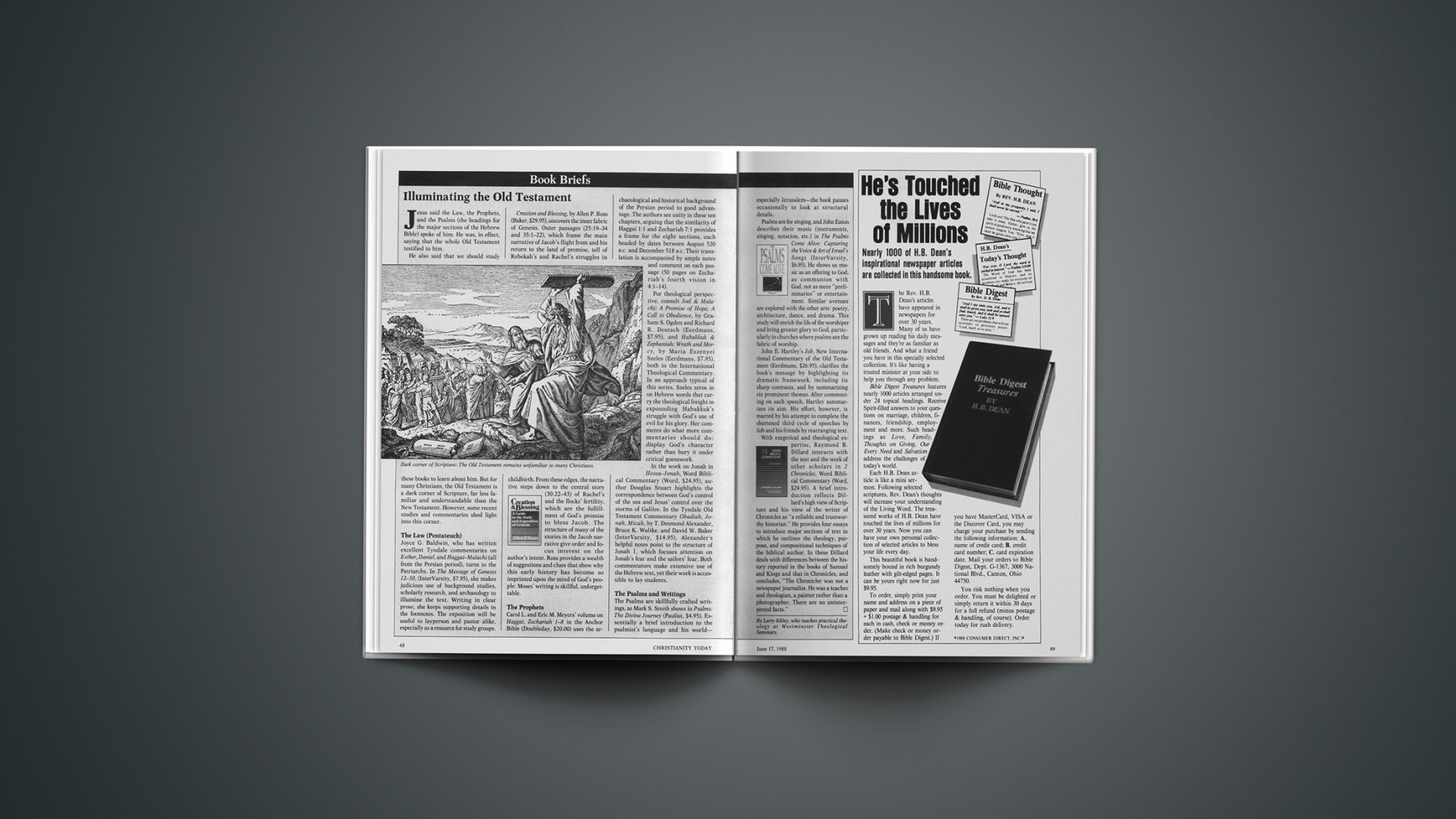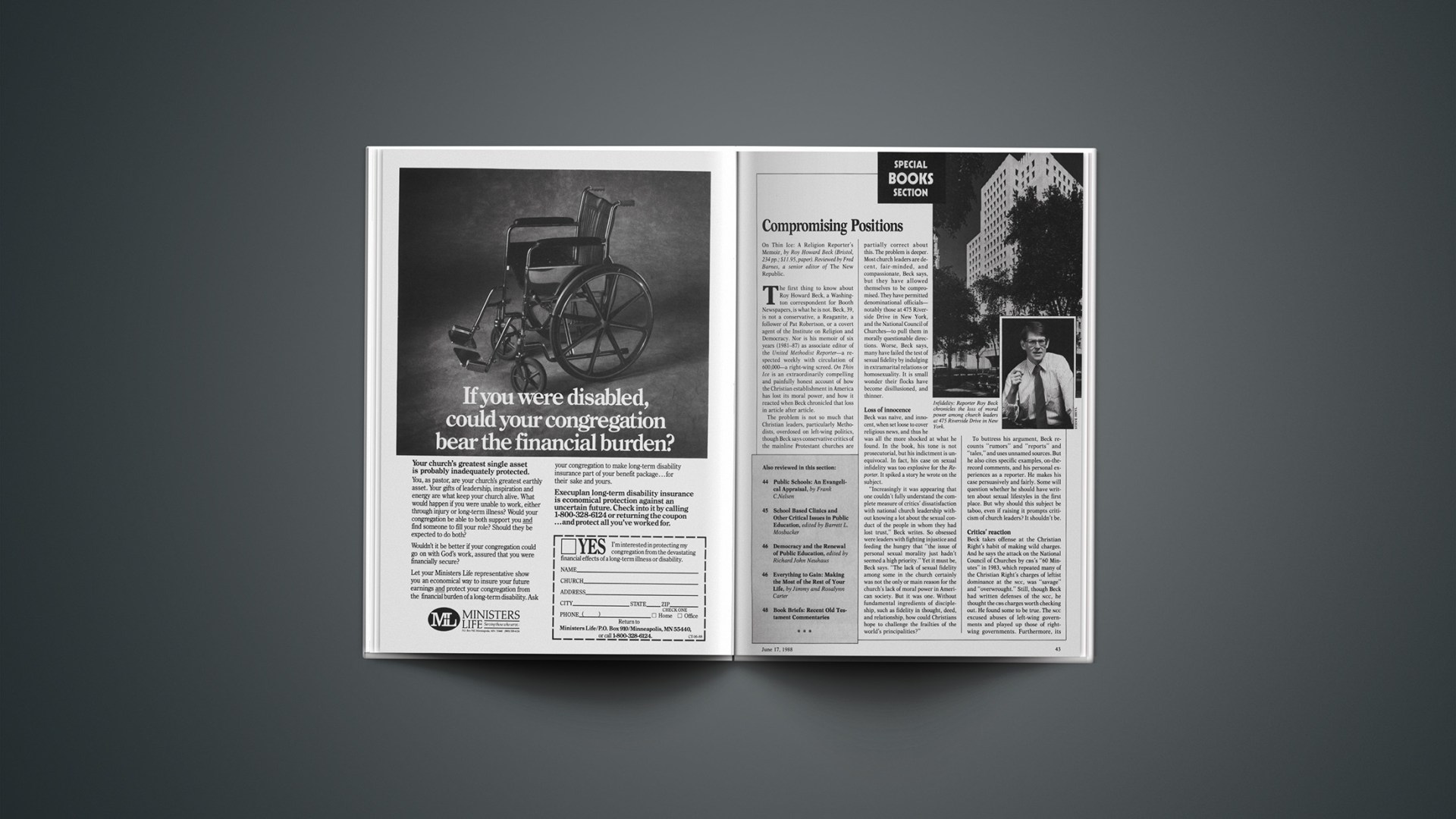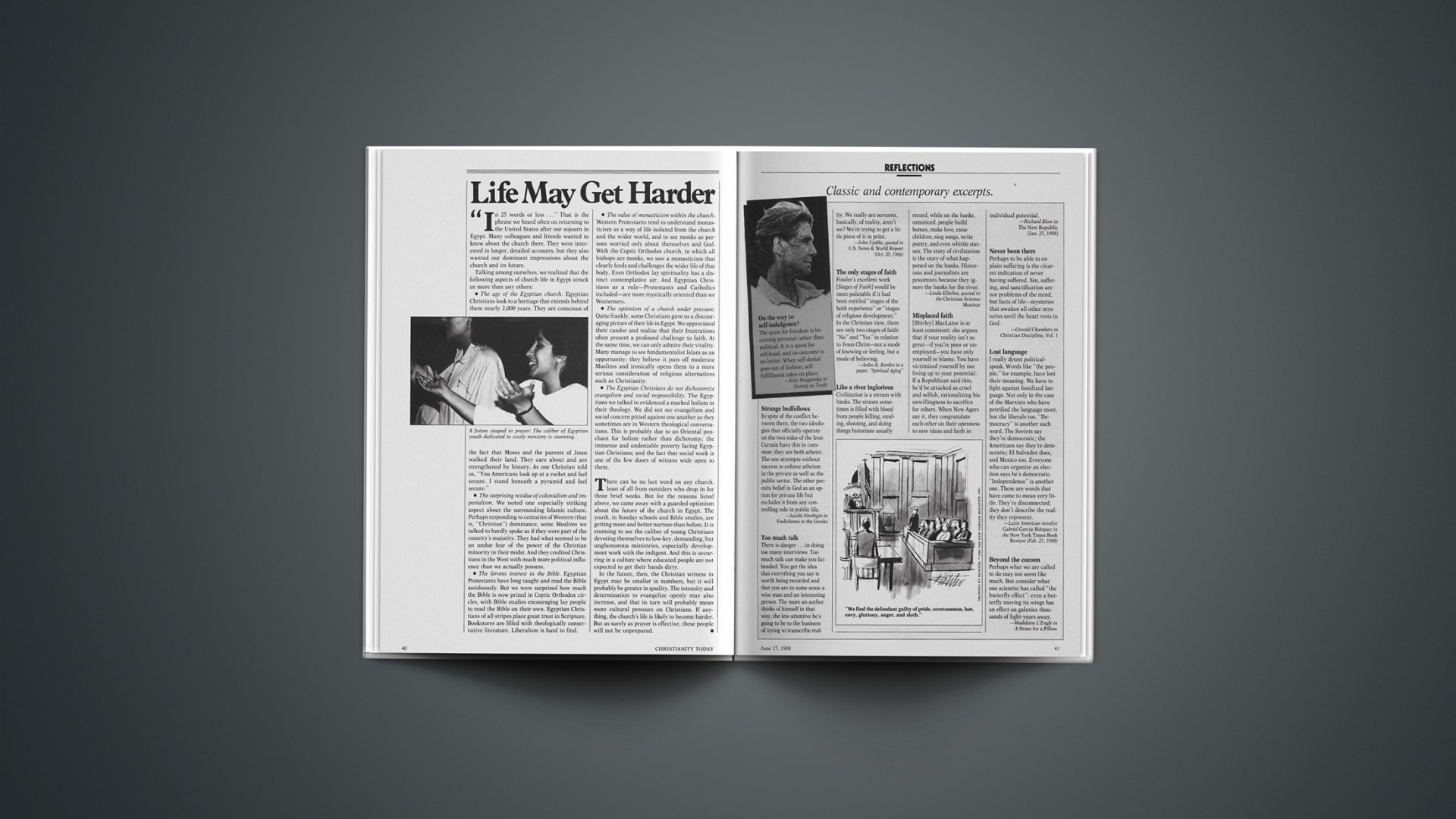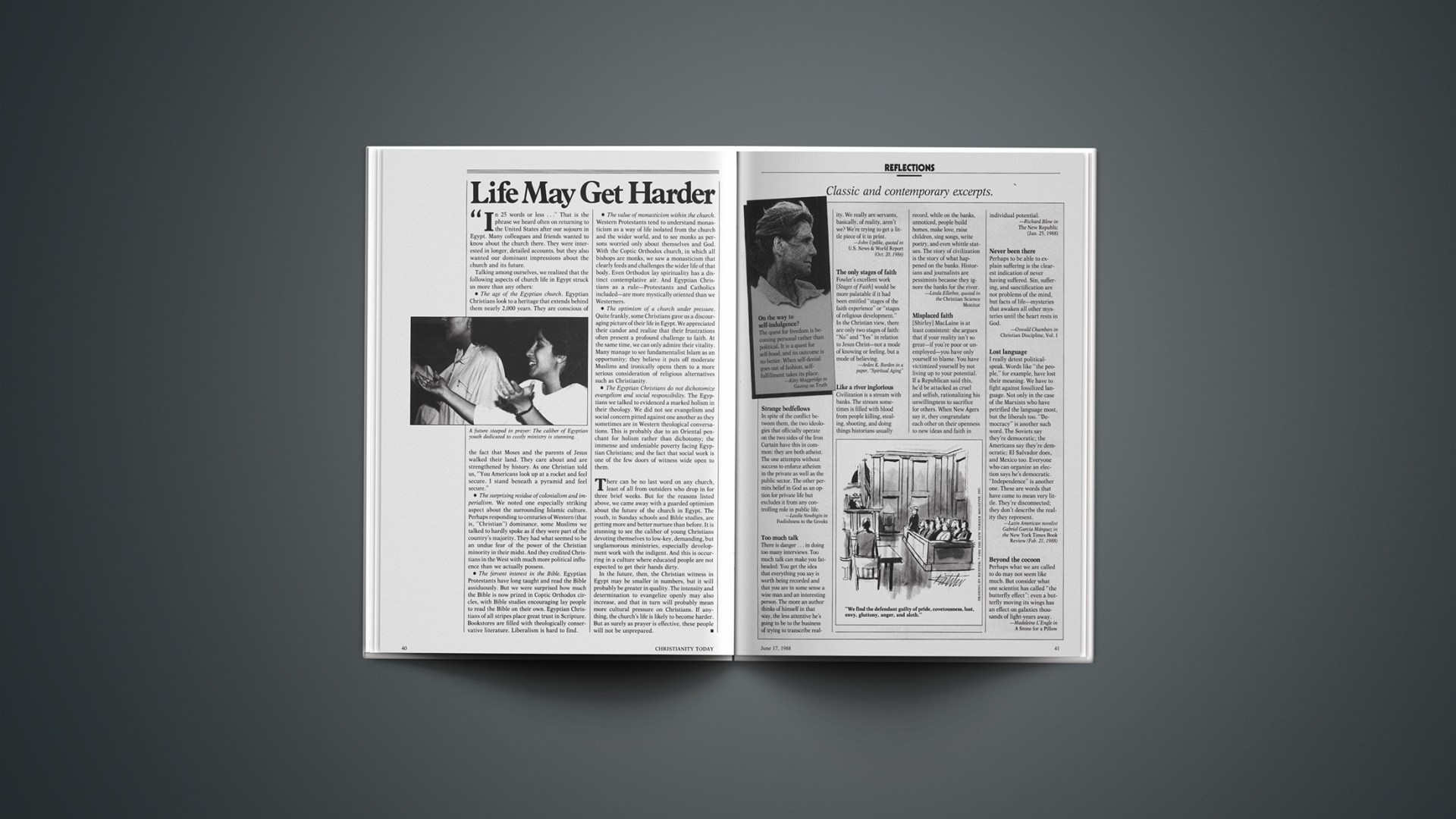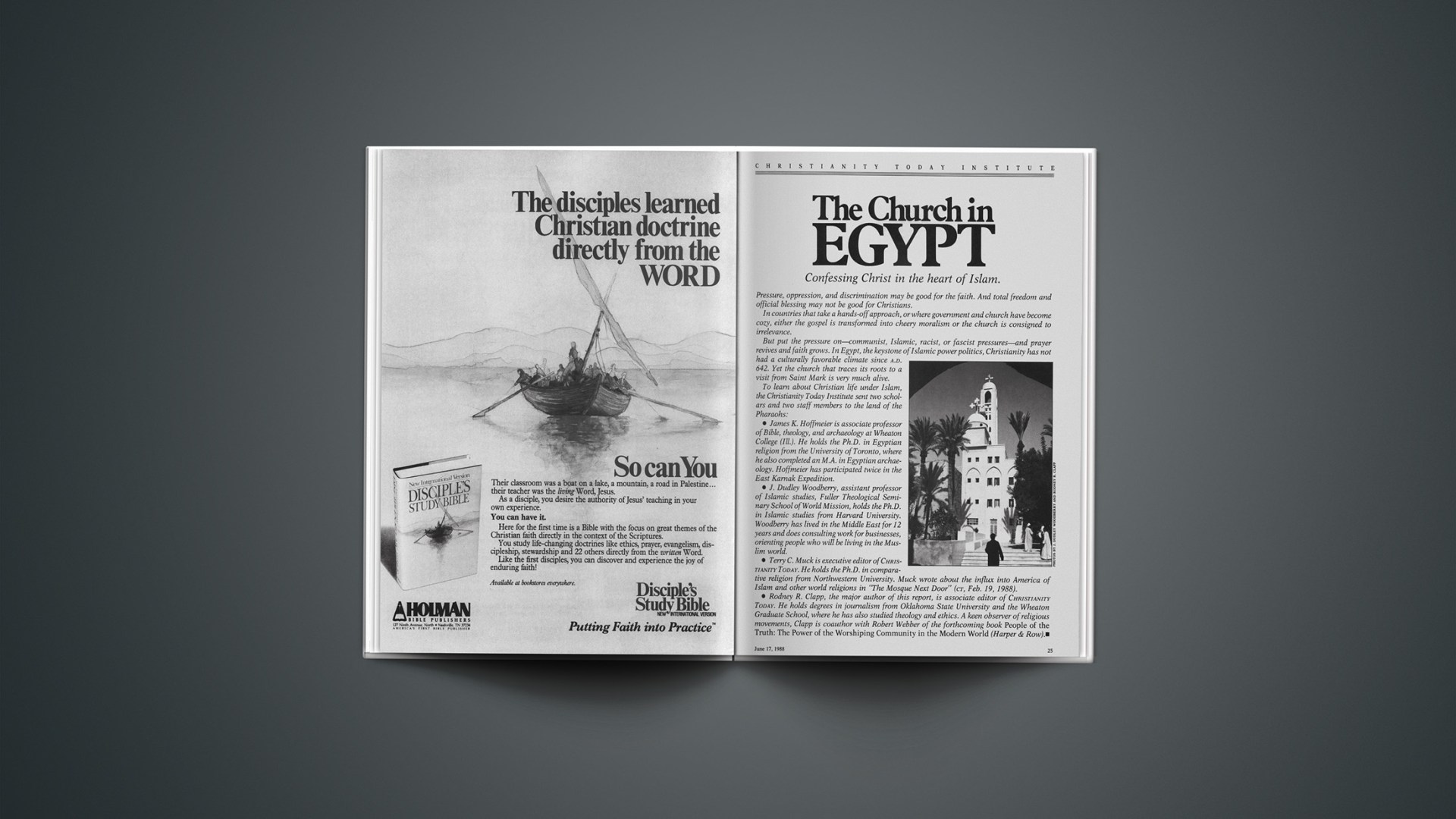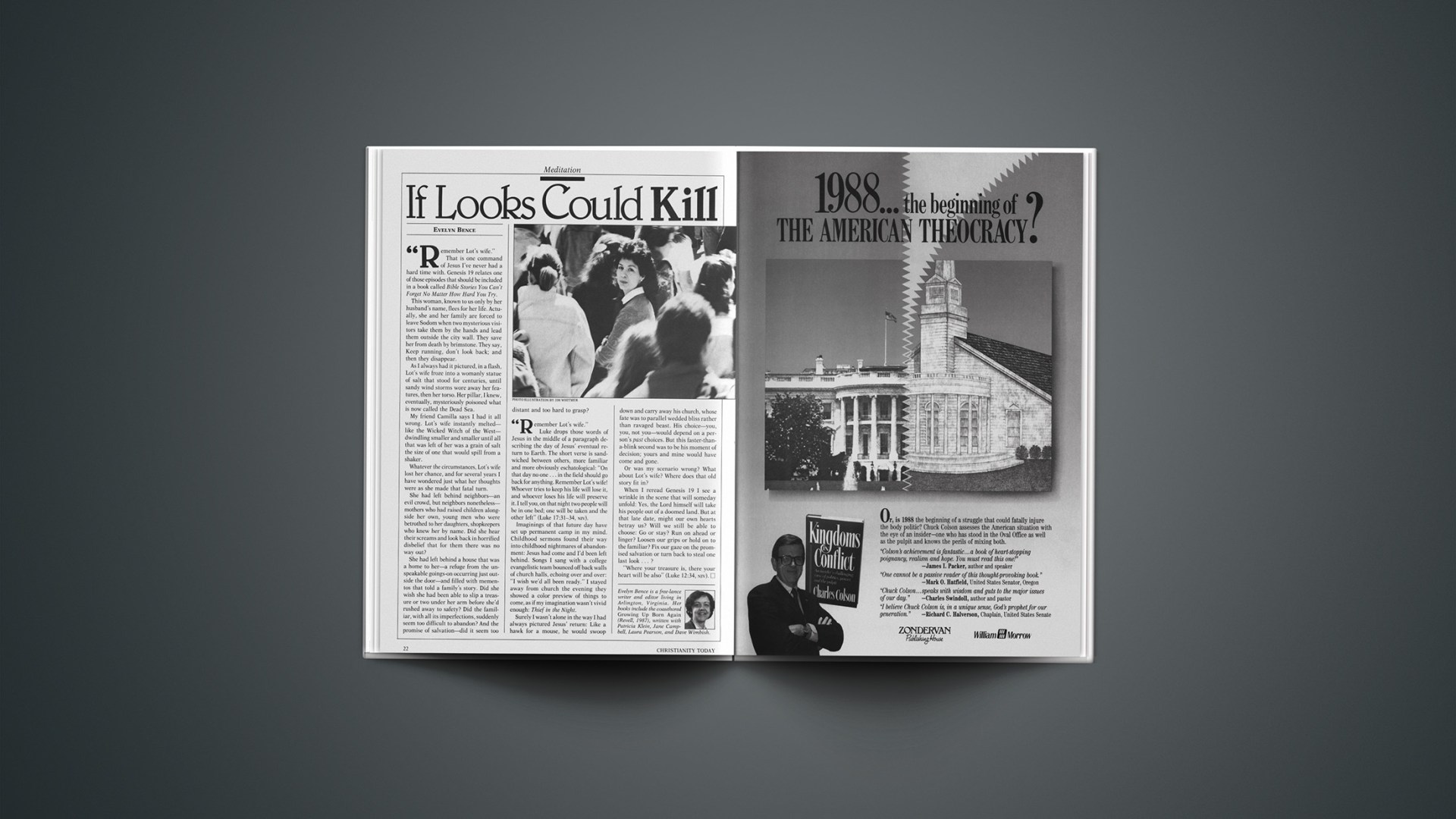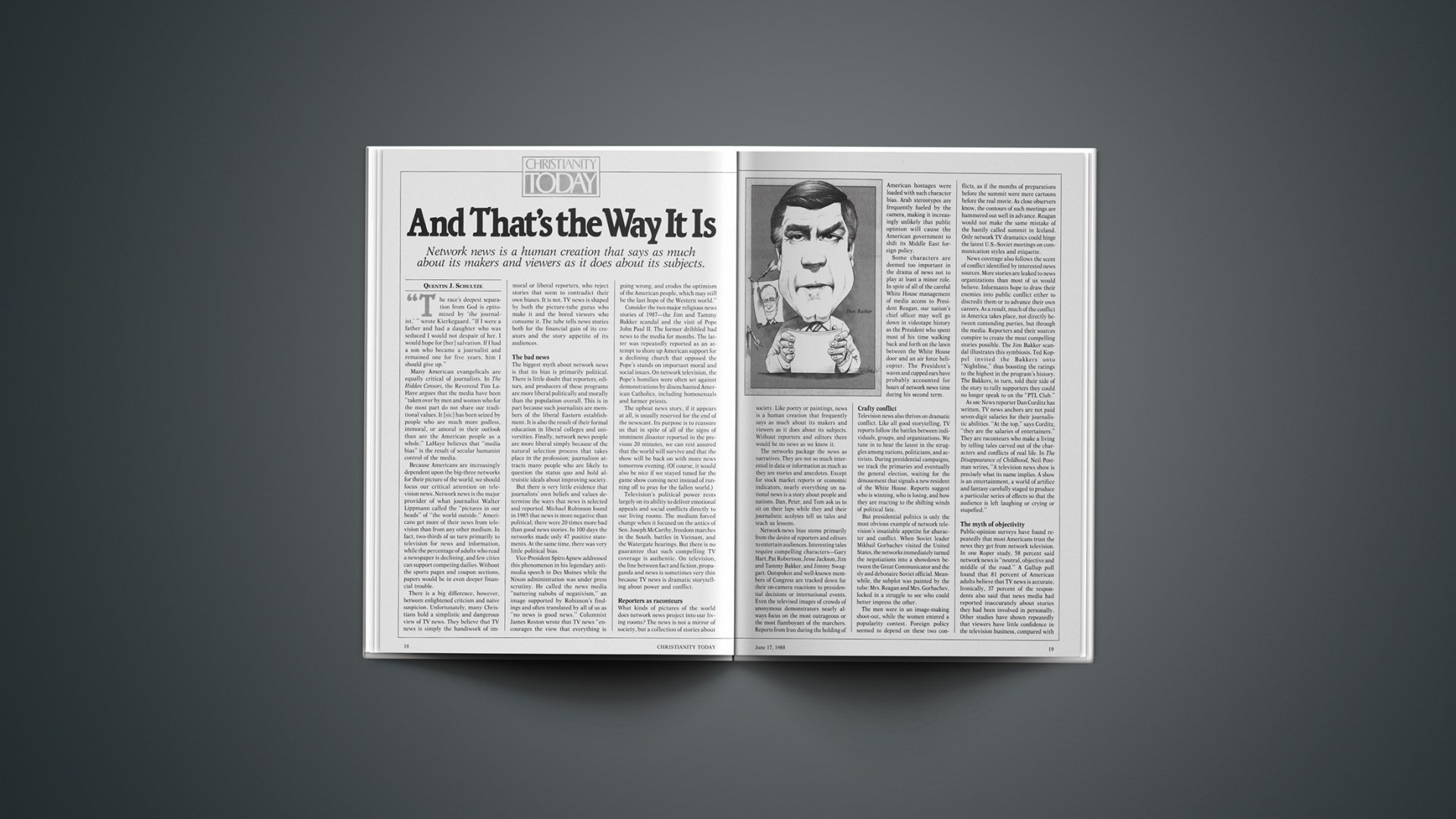RELIGIOUS FREEDOM
This month, Christians in the Soviet Union and around the world are marking the one-thousandth anniversary of Christianity in Kievan Rus’ (old Russia). Although millennium celebrations are hailing Christianity’s contributions to Russian culture, art, literature, and language, the prime focus has been religious. And throughout the festivities, the issue of religious liberty within the Soviet Union has come to the forefront of international attention.
Encouraging Signs
In the era of glasnost (openness) and perestroika (restructuring), the Soviet government has acknowledged and, to a degree, is encouraging millennium celebrations. Most notable is this week’s Moscow conference with the state-approved Russian Orthodox Church and Western religious leaders. In addition, permission was granted for a council meeting of Russian Orthodox bishops—only the third such meeting permitted since World War II.
Restorations have been allowed on historic churches and religious artwork, and about 30 Orthodox churches have been granted permission to reopen. The Danilov Monastery, used by the Soviets as a prison for young people, has been returned to the Orthodox Church.
In addition, the Soviets have eased restrictions on importing and printing Bibles and biblical literature. The Russian Orthodox Church is printing 100,000 Bibles, and the All-Union Council of Evangelical Christians/Baptists has been granted permission to import 100,000 Bibles. Earlier this year, 5,000 sets of Russian-language commentaries by William Barclay were sent to Soviet Christians. And on a recent trip to Moscow, State Department representatives were told individual churches could control the distribution of religious literature.
Other indications seem to suggest an easing on religion nationwide. More than 150 religious prisoners have been released in the past year, and currently, arrests of believers have virtually stopped. The State Department says about 8,000 Jews and 100 evangelicals were allowed to leave the Soviet Union last year.
“What we see is a gray area [about religion] developing under Gorbachev,” said a high-ranking administration official. “Things are still not allowed, but they’re not being prosecuted.”
At the same time, Soviet officials hint of reforms to come. In a recent meeting with Orthodox leaders in the Kremlin, Gorbachev made an unprecedented admission of “mistakes” in Soviet treatment of religion. According to the official news agency, Tass, Gorbachev said, “Mistakes made with regard to the church and believers in the 1930s and the years that followed are being rectified.”
Tass said the Soviet leader promised that “a new law on the freedom of conscience, now being drafted, will reflect the interests of religious organizations.” The State Department confirms that the Soviets have repeatedly made promises to the Reagan administration of legal revisions in regard to religion.
Western Pressure
Western observers have been using the occasion of the millennium to push for greater freedoms for Soviet believers. In a rare display of ecumenical unity on foreign policy matters, more than 200 Americans from across the religious and political spectrum have signed a petition urging Gorbachev “to demonstrate [his] commitment to peace by assuring all the peoples of the Soviet Union the right of religious freedom.…”
The petition was printed in both English and Russian, and the effort was spearheaded by the Washington-based James Madison Foundation. Among the changes called for:
• Legalization of the Greek Catholic (Ukrainian Catholic)
Church and the Ukrainian Orthodox Church and other religious groups banned by Stalin;
• Permission for religious organizations to engage in charitable activities;
• Permission for religious instruction of children, young people, and adults outside the home;
• A general amnesty for all religious prisoners of conscience;
• Full emigration rights for all believers wishing to leave.
“We are asking that religious believers suffer no civil, political, or legal disabilities for the public profession and expression of their faith,” James Madison Foundation President George Weigel told a Washington news conference. Weigel said the petition has been distributed to both American and Soviet officials.
The U.S. government has also been giving high visibility to Soviet religious freedom. A nonbinding congressional resolution signed by the President last month recognizes the millennium and “deplores the Soviet Government’s active persecution of religious believers in Ukraine … The resolution calls on the Soviets to legalize the Ukrainian Orthodox and Ukrainian Catholic Churches and discourages official U.S. participation in millennium celebrations in the Soviet Union “so long as individuals remain harassed and imprisoned for their religious beliefs.”
The Reagan administration made the topic a high priority on the Moscow summit agenda. At a presummit meeting in the East Room of the White House, former Soviet prisoners and representatives of religious special-interest groups met with U.S. officials to discuss the religious situation in the Soviet Union. President Reagan addressed the group, saying “the most fitting way to mark the millennium of Christianity in Kievan Rus’ would be granting the right of all the peoples and all the creeds of the Soviet Union to worship their God in their own way.”
Reagan spoke hopefully of the “encouraging signs” coming out of the Soviet Union about religious matters. Yet many religious activists in the Soviet Union and the West worry about what will happen when the millennium celebrations are over, and Western attention moves on to other matters.
“Guarded Optimism”
Institute on Religion and Democracy Executive Director Kent Hill said Protestants in the USSR are viewing the current climate with “guarded optimism.” On a recent trip to the Soviet Union, Hill said he found a “general sense of unease” among Protestants who remember times of relaxation in their history that were followed by more intense persecution.
Vladimir Shibayev, an exiled Russian Orthodox priest, is more blunt. “The free and democratic West must not allow itself to be deluded,” he said. He called the Gorbachev era a “tactical pause” while Soviet officials add to their files and make new strategies against the church.
According to Keston College, a group that monitors human rights in the Soviet Union, 162 Christians remain in labor camps because of their faith, and unknown numbers of believers remain in psychiatric hospitals. Although arrests have dropped off, many groups, especially the unregistered Baptist and Pentecostal churches in more remote areas, report continued harassment. The International Representation for the Council of Evangelical Baptist Churches of the Soviet Union reports that in the past several months, numerous worship services have been disrupted, and that the interrogation of Christians—including children—has continued.
No matter what the ultimate outcome of millennium efforts, one irrefutable fact remains: Despite decades of intense oppression, Soviet believers have clung stubbornly and steadfastly to their faith. “The commitment the Soviets had in 1917 and in the years thereafter to teach atheism has gone down the drain,” said a high-ranking administration official, speaking on background. The official said he believes a religious revival is taking place in the Soviet Union, especially among the young people.
“In that spiritual desert, there are people really thirsting for a special message,” he said. “Communism is a dying faith.”
By Kim A. Lawton.

